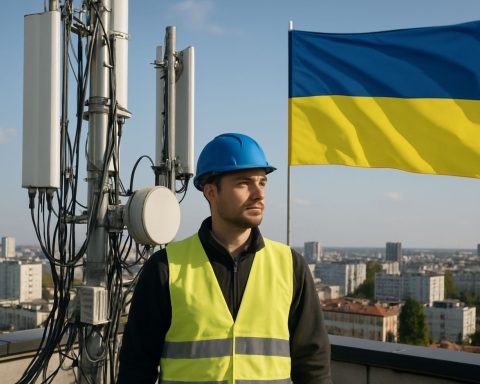- Norbert Wiener, a pioneer in technology and mathematics, was shaped by intense parental expectations, notably from his father, Leo Wiener, a Harvard professor.
- At 11, Norbert entered Tufts University, missing normal childhood experiences due to academic pressures.
- Despite early accomplishments, including earning a Ph.D. from Harvard at 18, Norbert faced personal challenges stemming from his father’s influence.
- Studying in global institutions allowed Norbert to develop his academic voice, discovering his Jewish heritage and reassessing his identity.
- Norbert made significant contributions to science, including theories on Brownian motion and cybernetics, foundational to AI and computer science.
- Cybernetics, Norbert’s most notable legacy, explored regulatory systems and influenced various fields like biology and philosophy.
- Norbert’s journey highlights the tension between rigorous training and creative independence, demonstrating the impact of intellectual freedom.
Norbert Wiener, a name synonymous with groundbreaking advances in technology and mathematics, navigated a tumultuous journey shaped by intense parental expectations. Raised within the walls of an intellectually rigorous household, his formative years were overshadowed by the formidable presence of his father, Leo Wiener, a Harvard Slavonic studies professor celebrated for his mastery of 30 languages. This gifted child was thrust into a world of relentless academic rigor, a childhood characterized by complex mathematical puzzles and sophisticated theories far beyond the grasp of his peers.
At a mere 11 years of age, Norbert’s prodigious abilities propelled him into Tufts University, situating him among the youngest students in the institution’s storied history. Yet, this came at the cost of normal childhood experiences. Isolated, without contemporaneous companions or the carefree joy of youth, Norbert’s formative years resembled more those of an automaton expertly crafted by his father.
Despite his exceptional intellect, Norbert’s academic path was strewn with personal challenges. The looming specter of his father’s criticism and the relentless drive to prove his worth weighed heavily on him. Harvard welcomed him at 14, granting him a Ph.D. by 18, but these accomplishments belied the sleepless nights and depressive episodes triggered by familial pressures. Leo’s overshadowing influence rendered each achievement bittersweet, publicly attributing Norbert’s success to his own stringent education methods.
As Norbert matured, his intellectual voyage took him to renowned hubs of knowledge, including Cornell, Göttingen, and Cambridge. These institutions offered respite from his father’s influence, spaces where he could cultivate his own academic voice. His discovery of his Jewish heritage—a truth concealed by Leo due to societal prejudices—forced Norbert to reassess his identity amid this broader search for autonomy.
It was within this quest for self-definition that Norbert championed his monumental contributions to science. He forged the theoretical framework for Brownian motion and contributed crucial insights into artillery trajectories during World War II. Yet, his most influential legacy lies in birthing the field of cybernetics, an interdisciplinary study of regulatory systems, guided by feedback, which laid the groundwork for modern artificial intelligence and computer science.
Norbert’s theories on cybernetics highlighted the critical role of information and self-regulating systems. This revolutionary approach not only transformed technology and engineering but also offered new perspectives across biology, economics, and philosophy.
Even as he carved out his autonomy, Norbert acknowledged the value of his father’s rigorous training. He realized that without such foundational knowledge, his intellectual achievements might not have been possible. Nevertheless, it was Norbert’s resistance against paternal control and his resolve to forge his unique path that fueled his quest for knowledge and innovation. Norbert Wiener’s life is a testament to the power of intellectual freedom—the catalyst that enabled him to illuminate new scientific pathways and redefine the boundaries of human understanding.
The Untold Story of Norbert Wiener: From Struggle to Cybernetics Genius
Introduction
Norbert Wiener, a pivotal figure in the birth of cybernetics, navigated an intertwining journey of personal struggles and groundbreaking achievements. While the original narrative highlights his early academic rigor and paternal pressures, there’s more to Wiener’s life that underscores his multifaceted contributions to science and technology.
Early Life and Education: A Deeper Dive
– Extreme Academic Environments: Entering Tufts University at 11 and Harvard by 14 is an extraordinary feat, but it came with significant social alienation. Experts suggest that such intense educational pathways can impede emotional development (Source: Psychology Today).
– A Hidden Heritage: Discovering his Jewish heritage later in life had profound implications for Wiener, not only reshaping his identity but also influencing his stance on ethical issues in technology. His work often pondered the societal impacts of automation, drawing parallels between personal and cultural discovery.
Innovations in Cybernetics
– Understanding Cybernetics: Cybernetics is an interdisciplinary study of systems and control processes in animals and machines. It has profound implications for modern artificial intelligence, evident in today’s AI algorithms and feedback systems used in robotics and computing.
– Application Across Disciplines: Wiener’s theories impacted more than just technology. His view that systems could be self-regulating is applied in economic theory, biological feedback models, and even social sciences.
Real-World Use Cases of Cybernetics Today
– Artificial Intelligence and Machine Learning: Cybernetics forms the backbone of artificial neural networks and AI, with self-regulation models driving innovation in machine learning systems (Source: AI Education).
– Industrial Automation: Cybernetic principles are used in modern manufacturing, enabling self-regulating production lines that enhance efficiency and precision.
Pros & Cons Overview
Pros:
– Innovative Framework: Pioneered a radical shift in thinking about systems automation and control.
– Cross-disciplinary Impact: Revolutionized fields from computer science to philosophy, offering new insights into system behaviors.
Cons:
– Complexity and Misinterpretation: The advanced nature of cybernetics can lead to misinterpretations of its applications, particularly in ethics.
– Over-reliance on Technology: Raises questions about the balance between machine autonomy and human control.
Market Forecasts & Industry Trends
The demand for cybernetics-based solutions is expected to grow exponentially, particularly in AI and IoT markets. The global cybernetics market is poised to reach significant value by the year 2030, driven by advancements in computational power and data analytics (Source: Future Market Insights).
Actionable Recommendations for Enthusiasts
1. Deepen Understanding: Read Wiener’s seminal work, “Cybernetics: Or Control and Communication in the Animal and the Machine,” to grasp foundational concepts.
2. Explore Courses: Consider enrolling in interdisciplinary courses that cover cybernetics, AI, and systems theory.
3. Engage with Communities: Join forums and groups focused on cybernetics and AI, such as those on Reddit or LinkedIn.
Conclusion
Norbert Wiener’s journey from a pressured prodigy to a pioneer in cybernetics underscores the triumph of intellectual freedom. His visionary work not only shaped modern technology but also invites ongoing reflection on the ethical dimensions of automation. Embracing Wiener’s insights can lead to more informed, balanced perspectives in the ever-evolving field of science and technology.







